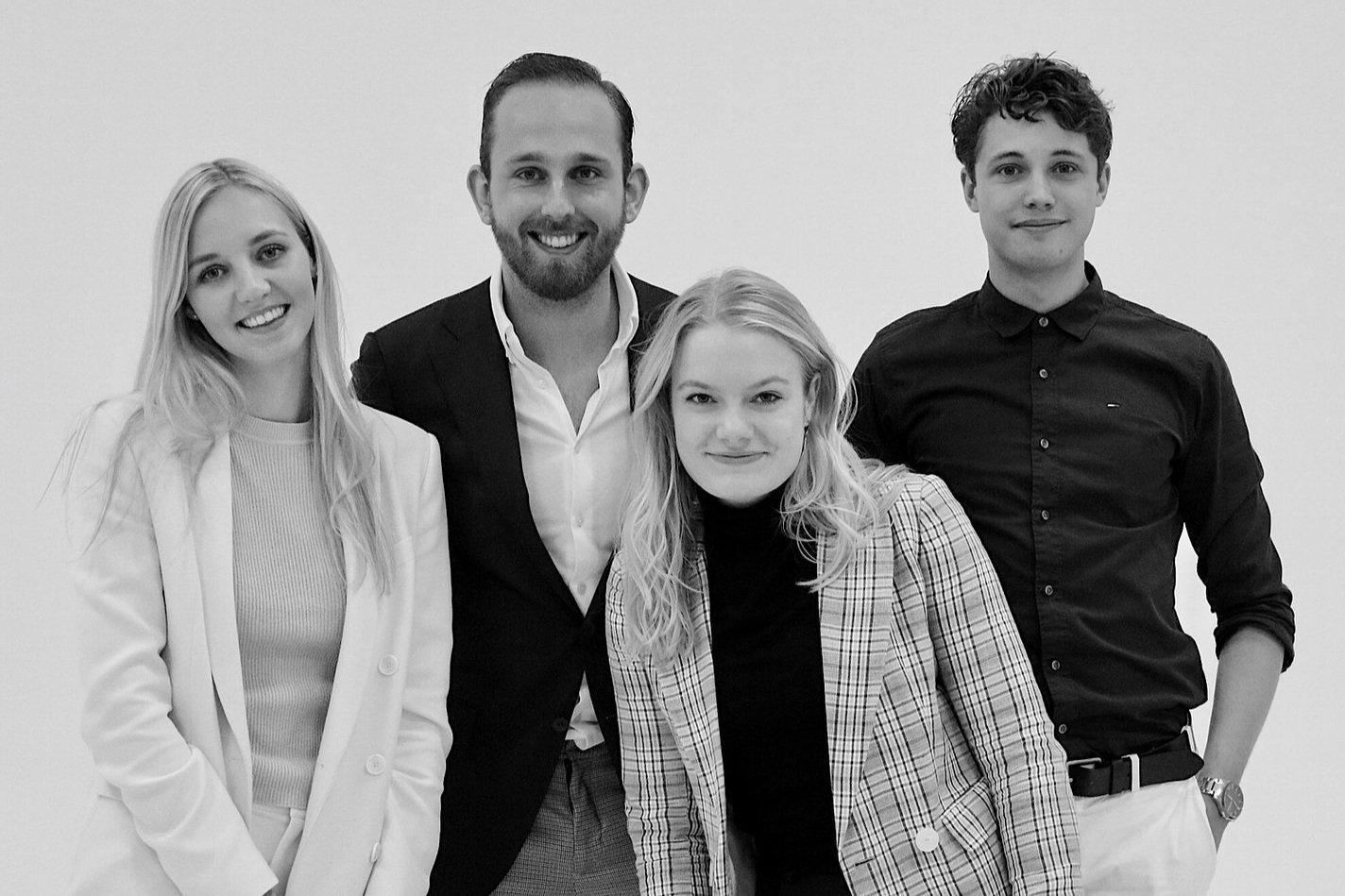Impact Education: Minor Entrepreneurship
According to the University of Amsterdam’s Entrepreneurship minor course coordinator, the aim for students enrolled in Entrepreneurship in Practice is simple.
“My aim is to question whether students have come up with a good business idea, and their aim is to show me that they have,” Dr Jonathan Sitruk explains.
The Entrepreneurship in Practice course is part of the five-month Entrepreneurship minor, and is a clear example of REC-Impact’s goal of encouraging cooperation between the Roeterseiland campus and society.
What is the Entrepreneurship Minor?
Alongside Entrepreneurship in Practice, the minor has two other courses: Cases in Entrepreneurship and Startup Psychology. Every year the minor is taken up by around 100 UvA students from across multiple disciplines such as business, information science and communication science.
Within the Entrepreneurship in Practice course, participants form groups and build their own startup.
“The whole idea is not to think of something out of thin air, but think about a problem that is worth solving,” Jonathan says.
Groups meet weekly with a coach for 30 minutes, where they have a chance to provide updates of what they’ve done and who they have spoken to in the previous week. They’re also guided through suggestions for improvement.
“We track the students and try to poke holes in their ideas to make them think,” he says.
“We ask them, ‘have you spoken to your consumers or your providers? How are you going to break even with this product or service?’”
Coaches include Jonathan Sitruk; Lien de Cuyper, another University of Amsterdam Assistant Professor and Lucia Piseddu, who founded and runs The BD School.
WePartyNow founders Merijn Uijthoven, Swen Koelemeijer and Jan Stoop. (Image supplied: Jan Stoop)
Student Jan Stoop took the minor last year, and founded WePartyNow: a platform depicting events happening around Amsterdam that users can buy tickets to.
“The beautiful part of the minor was the space created by the courses to develop WePartyNow step by step,” he says.
“The weekly meetings helped WePartyNow to the next level by brainstorming with the teachers.”
Building bridges to society
Jonathan says the minor is also “atypical” in that the course aims to put theory into practice by combining the coaching with mentoring (with more than 25 active mentors), guest lectures and workshops and events.
“The mentors are actual entrepreneurs who have a business and experience in specific fields who want to give back, and help by coaching the startups in certain areas like creation or marketing,” he says.
“We also have guest speakers and workshops where professionals from the outside world come and introduce their digital platform or service and how it can be used in the students’ entrepreneurial journey. Then Lucia, Lien and myself give tutorials using these tools.”
An example is TrendWatching - a consumer trend firm that helps more than 1000 clients track insights in innovation, transport and the environment.
Startup events
The Minor Entrepreneurship program features six events that allow the startup groups to connect with industry members and experts in different fields.
A mentor panel introduction, mentor pitching event, startup market, mentor feedback session and a pitching day allow students to source ideas and market their startup to the outside world.
Jan Stoop said the startup market “created a nice benchmark for us to show our party platform to the real world and get one-on-one feedback”.
Students taking part in one of the six events that make up the course. (Image supplied: Jan Stoop)
The final event is a demo day, where the top four startups will pitch their idea to a jury of entrepreneurs or industry members and in front of an audience. They have a chance to win a €1,000 jury prize and a €750 audience prize to invest in their company.
Master of Business Administration student Martijn Kuiper took the course two years ago, and was part of the group that created With Lof to combat food waste in supermarkets.
The founders of With Lof created a chicory valve to reduce food waste. (Image supplied: Martijn Kuiper)
With Lof founded a ‘chicory valve’ to keep the vegetable stored in darkness and improve shelf life. Their product has since been stocked in Albert Heijn, Jumbo and other major supermarkets.
Martijn said content learnt in the course was extremely helpful.
“It’s very practical and you can really build a meaningful company,” he says.
He has since stayed connected to the course by becoming a mentor to other groups.
REC-Impact
Jan Stoop says he would highly recommend the minor to other students for its ability to put theory into practice.
“It is really focused on actually doing something and when well executed you can start working full time on your newly founded company right after you finish your study.”
Lily Magi took the course and in 2020, where she helped to found Hoovus, an online platform for artists to sell their work and for consumers to purchase pieces.
“This is the best place to start your startup career (or I would even say startup life). The course brings you the possibility to network with different people, have the materials that other startup founders wish to have and helps you to go through your first significant failures and wins,” she says.
Jonathan explains the minor aims to close the gap between the campus and society.
“All too often, between the research we do and the teaching we do at the UvA there is some disconnect with the outside world,” he says.
“This course is really trying to mend this gap and make it so that students learn practical skills that they need in order to be competitive in the industry.”
Are you interested in becoming a mentor? Or could your company or organisation deliver a workshop to students? Reach out to Jonathan Sitruk.



